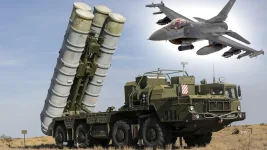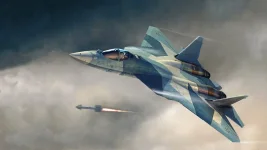- Views: 1K
- Replies: 7
Possible convergence of interest among China, Pakistan, and Bangladesh may result in serious implications for India’s stability and security dynamics, Chief of Defence Staff Gen Anil Chauhan said on Tuesday.
In an address at a think-tank, Gen Chauhan, delving into the May 7-10 military conflict between India and Pakistan, said it was perhaps for the first time that two nuclear weapon states were directly engaged in hostilities.The top military officer said economic distress in the countries in the Indian Ocean region has given “outside powers” to leverage their influence which could create vulnerabilities for India.
“There is a possible convergence of interest we can talk about between China, Pakistan, and Bangladesh that may have implications for India’s stability and security dynamics,” Gen Chauhan said at the event hosted by the Observer Research Foundation.His comments came as India’s ties with Bangladesh witnessed a sharp downturn after deposed prime minister Sheikh Hasina fled Dhaka and took shelter in India in August last year.
While talking about various aspects of Operation Sindoor, the Chief of Defence Staff (CDS) said further “expansion of space” in conventional operations is possible by taking it to newer domains of warfare like cyber and electromagnetic spheres.
He also highlighted how India called out Pakistan’s nuclear bluff.
“India has also said that it will not be deterred by nuclear blackmail. I think Operation Sindoor is the only example of a conflict between two nuclear weapon states,” he said.
Gen Chauhan said there have been hundreds of conflicts around the world ever since the nuclear weapons were invented, but it was for the first time that two nuclear weapon states were directly engaged in a conflict.
“So Operation Sindoor, in that manner, is slightly unique in itself, and it may hold lessons not only for the subcontinent, but for the entire world,” he said.
In this context, he observed that there was a lot of space for conventional operations and cited three fundamental reasons to back his argument.
“First is India’s nuclear doctrine, that there’s no first use. I think that gives us strength and that contributes to creating this particular space between us and Pakistan,” he said.
“Second is the way they responded actually. When India went to respond, we destroyed terrorist camps in response to the terror attack as part of a prevention strategy. You may call it revenge, you may call it retribution, but that ought to prevent further attacks.” Gen Chauhan said Pakistan escalated the conflict into a fully conventional kind of a domain.
“The escalation to a conventional domain was in the hands of Pakistan. Thus, it reduces his option to raise the threshold of this nuclear conflict,” he noted.
The top military officer said there is still space for expanding conventional operations.
“The fourth evolving military challenge is increasing vulnerabilities to long-range vectors and long-range precision flights. There is currently no foolproof defense mechanism against ballistic missiles, hypersonics, cruise missiles, and large-scale attack by drones or loitering ammunition,” he said.





